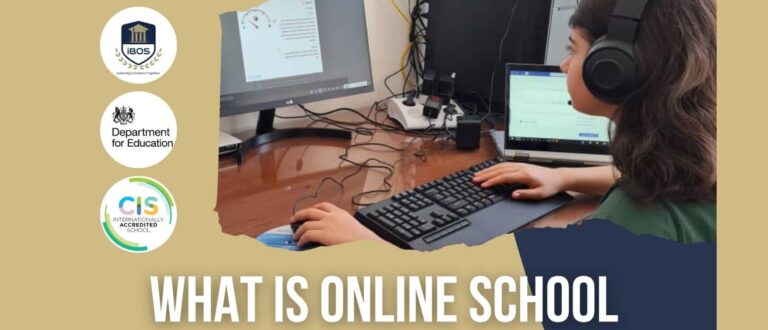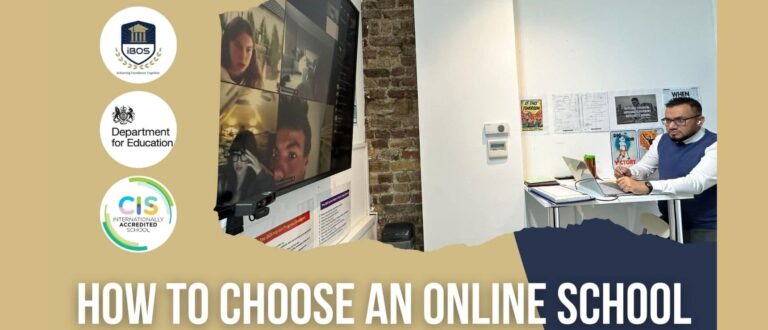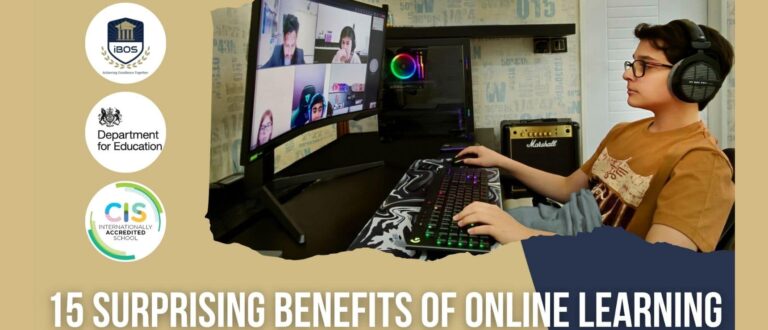After COVID-19 forced schools around the world into unplanned remote learning last year, you’re not alone if you have reservations about online schooling. Real online schools, however, are far different to the pandemic learning many families experienced. In fact, you may be surprised to learn that many common concerns about virtual education are actually misconceptions.
If you’ve been thinking online education is just a backup for traditional school, think again. In reality, online schooling is one of the best ways for students to get a high-quality, flexible education anywhere in the world. Read on to learn the truth behind some of the biggest myths around online school.
Myth 1: Online school students have to teach themselves
Reality: Online school classes have real, qualified teachers just like traditional schools.
One of the biggest misconceptions around online schooling is that students have to teach themselves. Many parents make the mistake of thinking that children in virtual schools are left to read textbooks, scour online resources, and learn material on their own. Sadly, during the pandemic, this was the reality for many students, who were given little more than the occasional Zoom class for support.
However, real online schools are a world away from this scenario — students attend live, interactive classes with qualified teachers every day, just as they would in a traditional school. Online teachers also provide help and guidance throughout the year to ensure students master each topic and get the best possible grades.
At the best virtual schools, teachers are experts in online learning as well as their chosen subjects. They know exactly how to use digital classrooms to their full potential, bringing in innovative technologies (like simulations and augmented reality) to help students get an even better understanding of their subjects.
Myth 2: Online school students get no socialisation
Reality: Students in virtual schools can socialise just as much as traditional school pupils.
Socialisation is another common concern about online schooling. In traditional schools, children can chat and bond with each other in classes, in the cafeteria, and in the playground. When students are learning from the comfort of their own homes, how can they socialise with each other?
In reality, online school students get many opportunities to socialise, as they would in a physical school. In virtual lessons, students can talk with teachers, work in groups with their classmates, and interact through their webcams, microphones, and keyboards.
Outside the classroom, online schools also run clubs and extra-curricular activities where children can bond over shared interests. Even those who don’t want to join a club will find safe social platforms where they can chat with each other and form lifelong friendships, no matter where they are in the world.
Myth 3: Online school students spend all day in front of a screen
Reality: Online school gives students even more opportunity to enjoy the outside world.
From computers to phones, modern parents often worry about screen time. While a September 2021 study from the University of Colorado-Boulder found that screen time is “likely not inherently harmful to our youth,” it can be hard to shake the feeling that children should spend more time enjoying life away from their devices. As such, the idea of going to school through a screen still leaves some parents feeling wary.
Yet, the truth is that online school students don’t spend nearly as much time on a computer as you may think. For starters, since teachers don’t need to waste valuable time dealing with disruptions in virtual classrooms, they can cover whole lessons in shorter periods of time. Shorter lessons mean a shorter school day, giving students plenty of time to enjoy away from their gadgets.
The best online schools also record every lesson, uploading them all to a central portal where students can watch them at any time. Many children use this advantage to fit schooling around their dreams in the wider world, from sports to acting and beyond. When students can catch up with their learning at a time that suits them, they’re never bound to their computers.
On top of that, keep in mind that not all learning in an online school takes place on a computer. While students will log-on to watch and interact with lessons, they’ll also step away from their screens to read textbooks, work on projects, create art and music, keep active, and more.
King’s InterHigh
Bringing the British curriculum to children aged seven to 18 around the world, online school King’s InterHigh ensures every student gets expert teaching, global socialisation, and much more. For an online education that nurtures and fulfils your child’s unique potential, check out King’s InterHigh to discover study options or discuss admissions.







